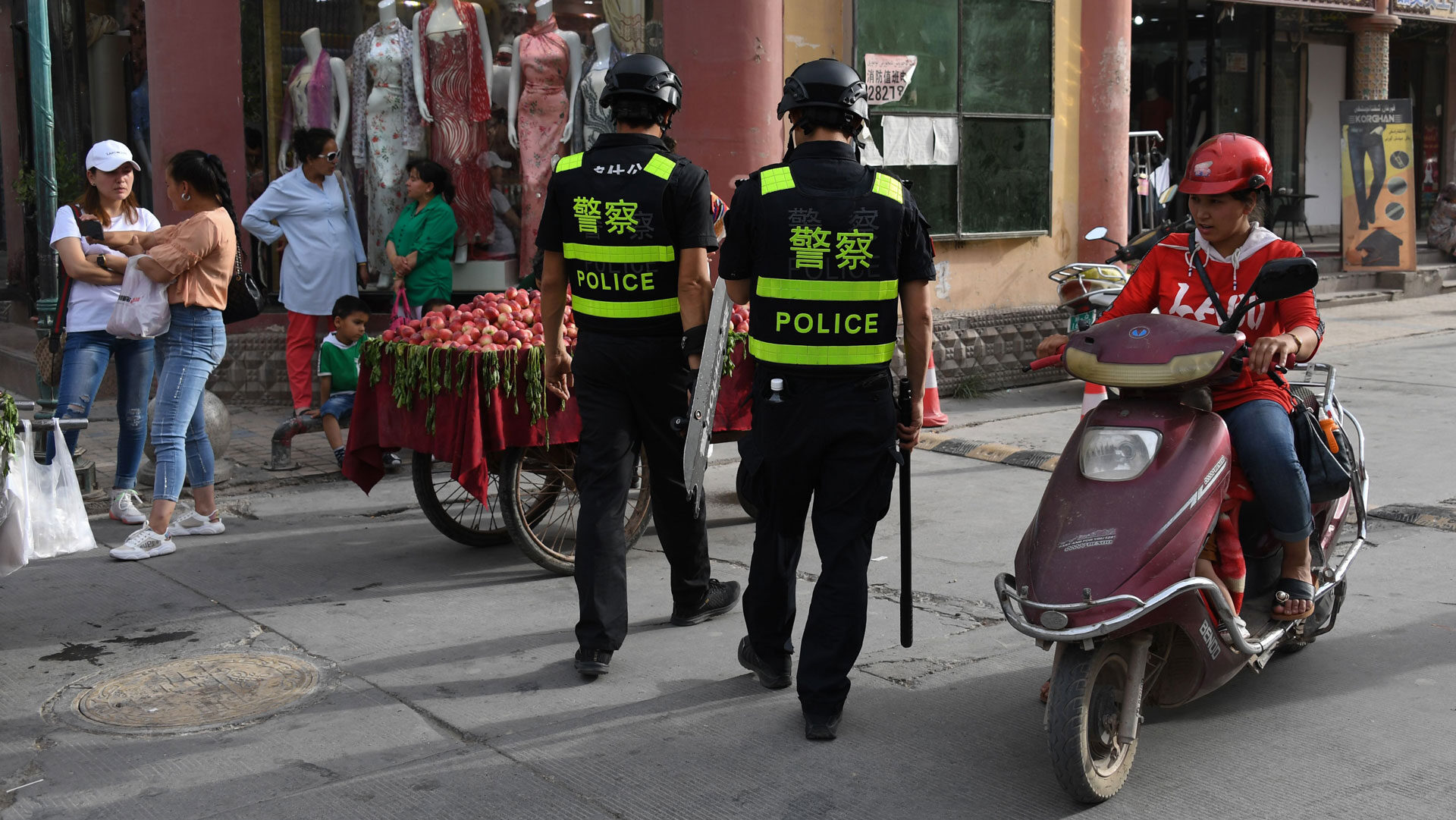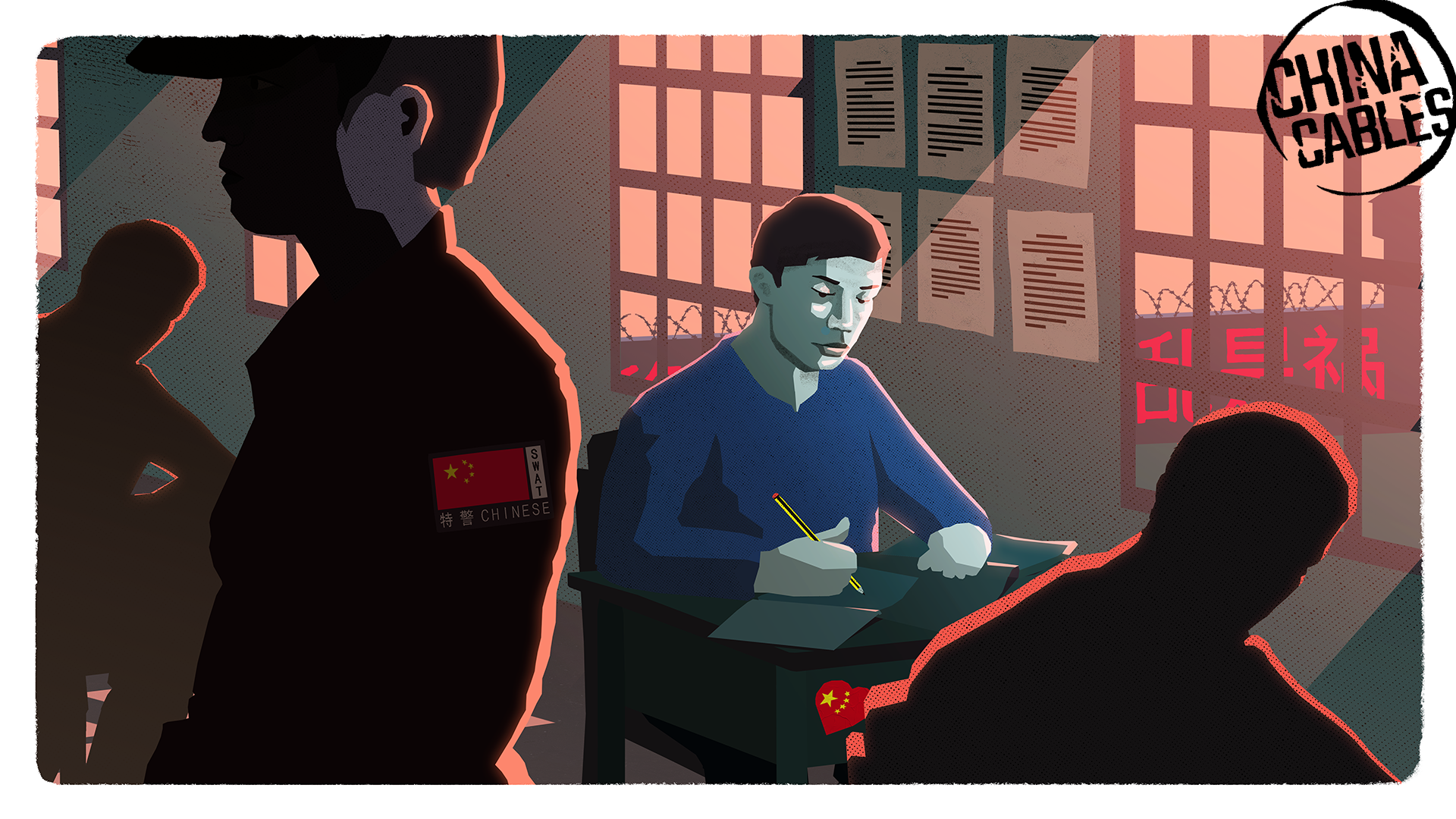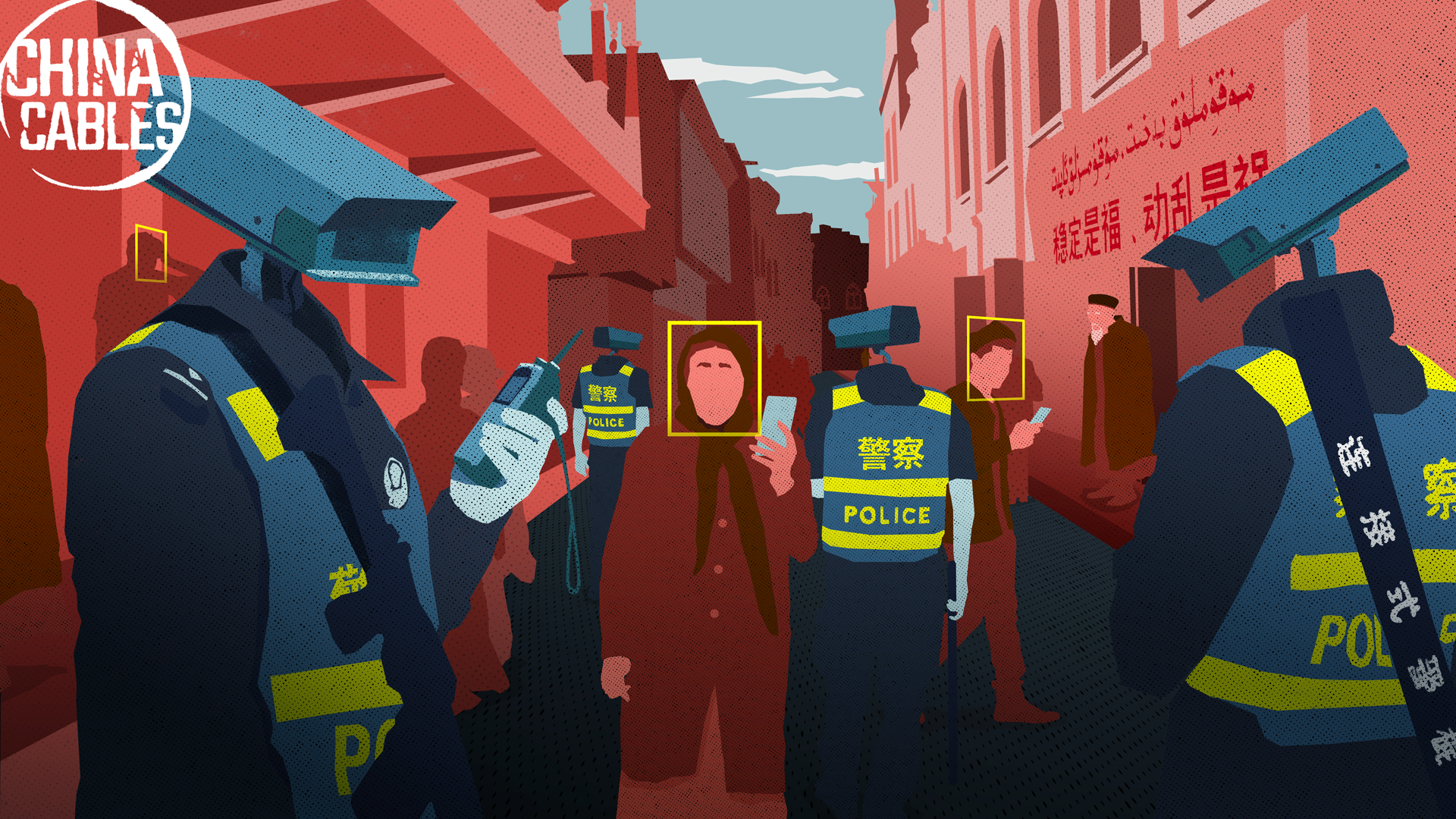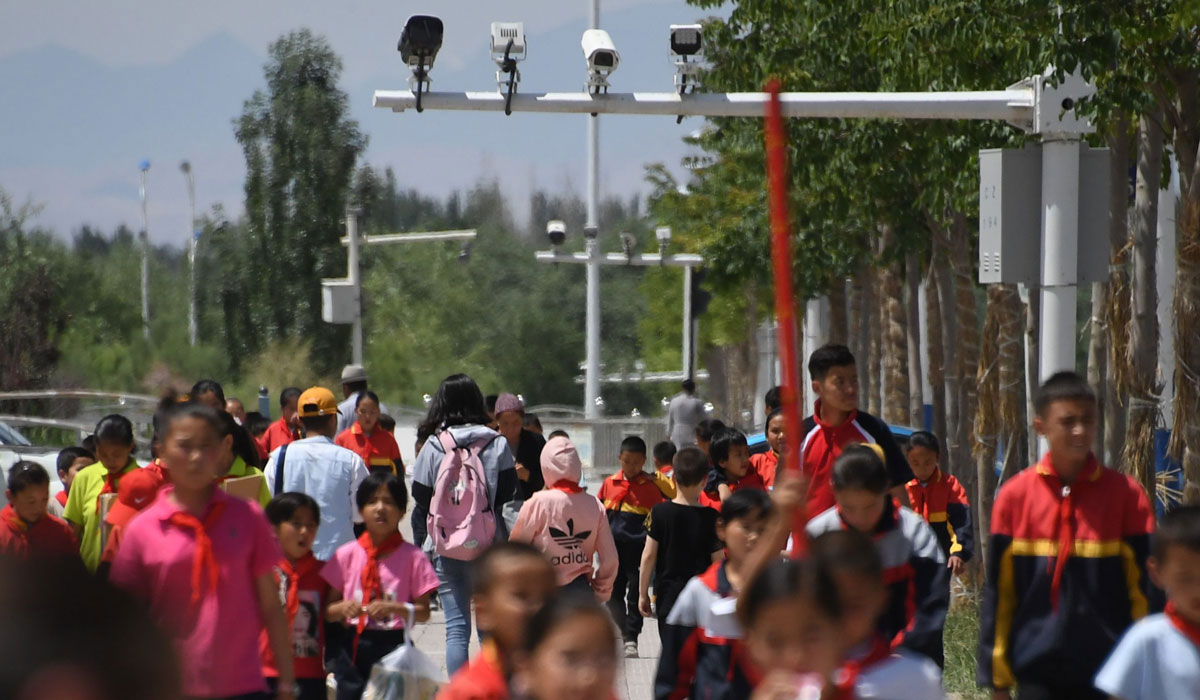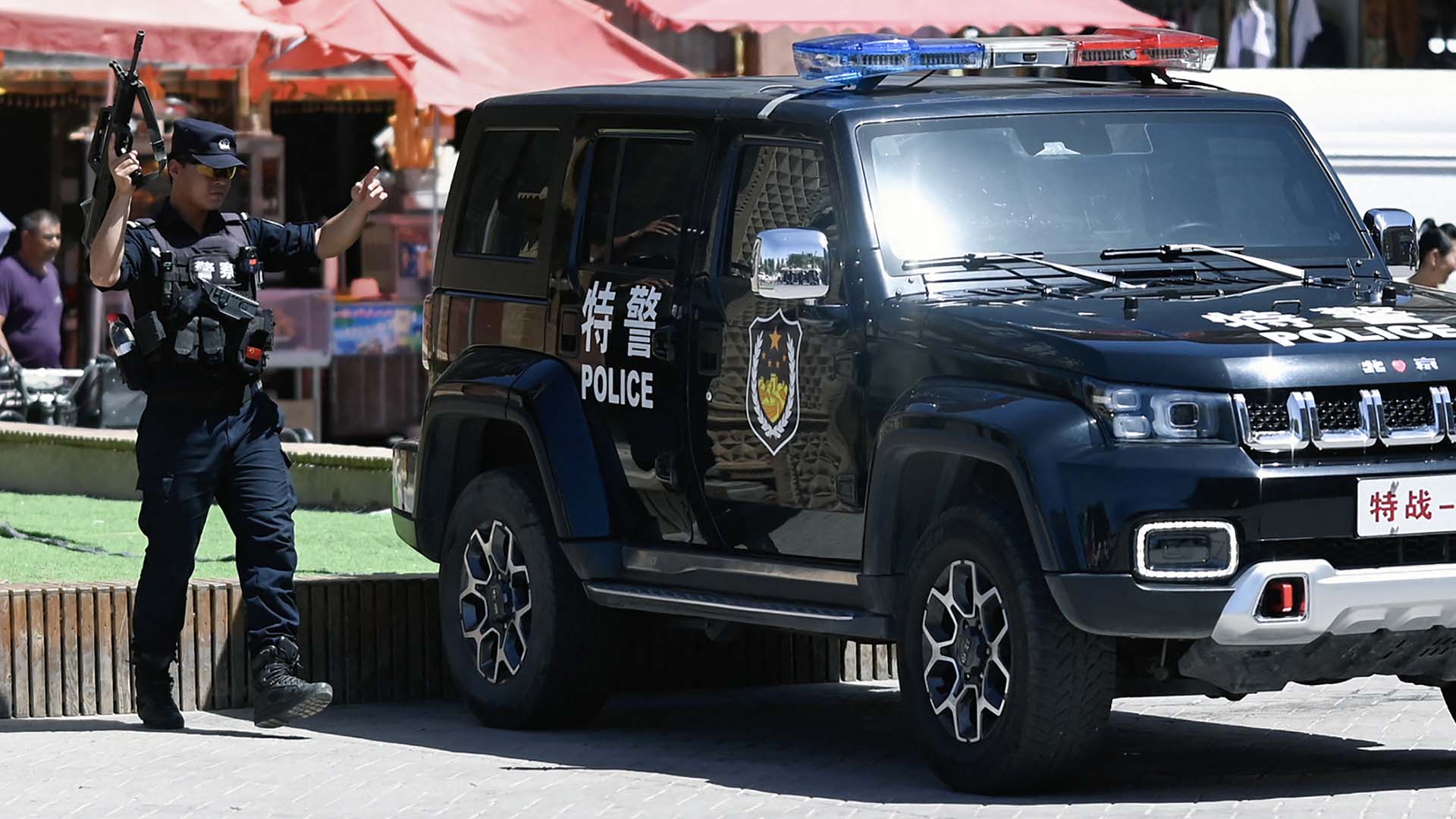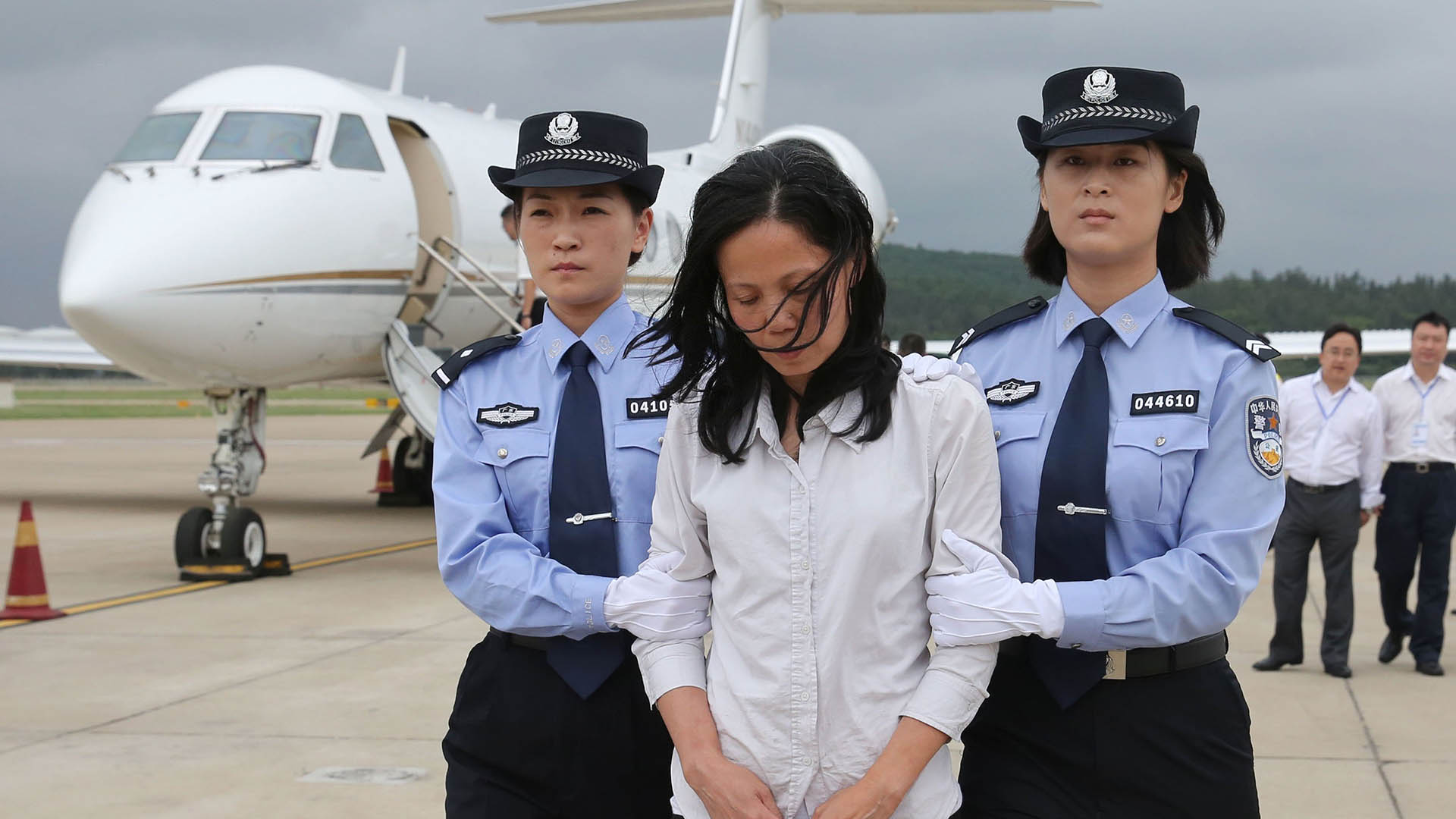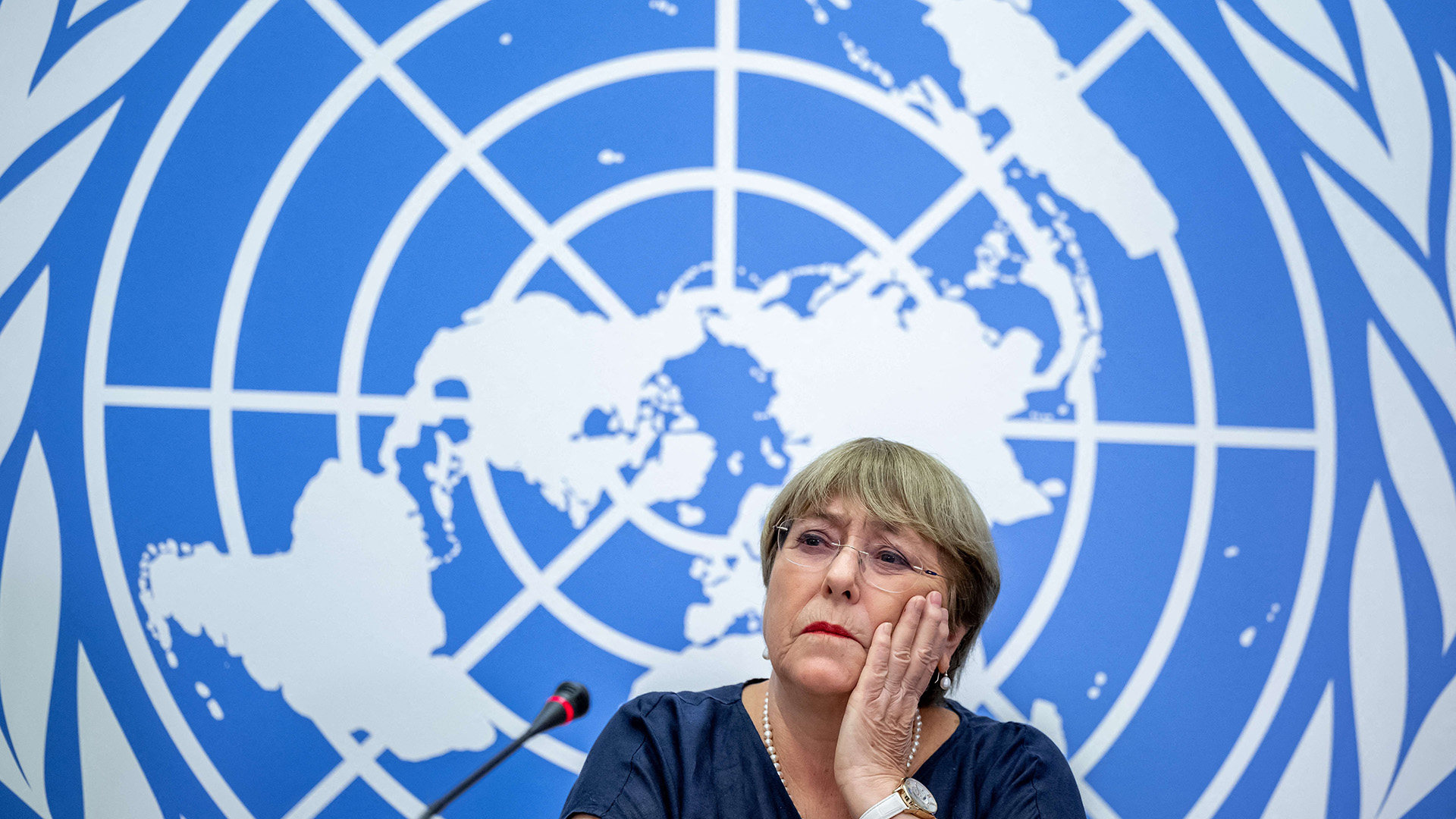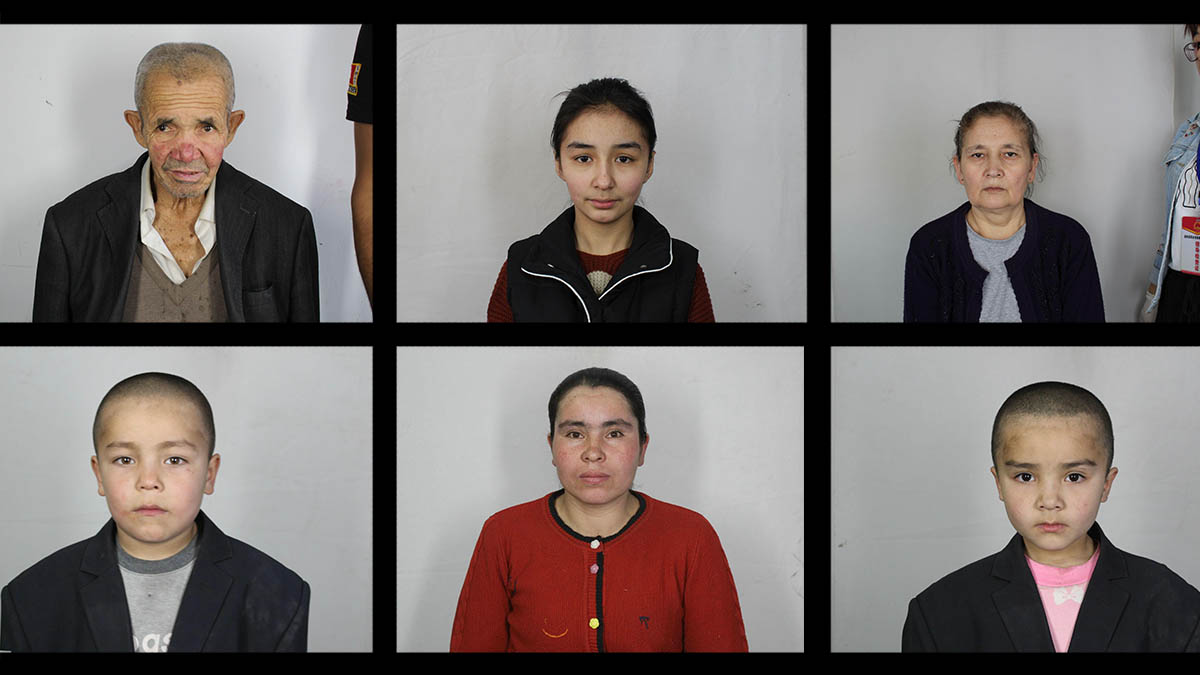The U.S. Secretary of State Mike Pompeo called on the Chinese government to “immediately” release all the citizens “arbitrarily” detained in mass-detention camps in Xinjiang.
Pompeo’s remarks follow those by government officials in the United Kingdom and Germany who have called on China to allow international observers into Xinjiang. Governments across Europe have also expressed deep concerns about the treatment of ethnic minorities in the region following the publication of the China Cables.
The China Cables investigation, published on Sunday by the International Consortium of Investigative Journalists in collaboration with 17 media partners around the world, uncovered the Chinese government’s operations manual for running mass detention camps in Xinjiang, and exposed the mechanics of the region’s Orwellian system of mass surveillance and “predictive policing.”
Speaking at a press conference on Tuesday, Pompeo said that ICIJ’s reporting confirms that the “very significant” abuses happening in Xinjiang were “intentional” and “ongoing.” The Secretary said that he hoped the release of the China Cables would help create momentum for a global response to China.
“These reports are consistent with an overwhelming and growing body of evidence that the Chinese Communist Party is committing human rights violations and abuses against individuals in mass detention,” Pompeo said.
“It’s the case now that you’ll see many more countries around the world acknowledging what’s taking place there and working alongside the U.S. to create space and improve human rights conditions for the people of Xinjiang.”
On Monday, a spokesperson from the U.K.’s Foreign Office told ICIJ’s media partners The Guardian that the British government would continue to push Beijing to ensure human rights were upheld.
“We have serious concerns about the human rights situation in Xinjiang and the Chinese government’s escalating crackdown, in particular the extra-judicial detention of over a million Uyghur Muslims and other ethnic minorities,” the spokesperson said.
“We want to see an end to the indiscriminate and disproportionate restrictions on the cultural and religious freedoms of Uyghur Muslims and other ethnic minorities in Xinjiang. The U.K. continues to call on China to allow U.N. observers immediate and unfettered access to the region.”
Germany’s Foreign Minister Heiko Maas backed the call for China to allow independent international access to the region from the United Nations Human Rights Commission.
“If actually hundreds of thousands of Uighurs are held in camps, then the international community can not close their eyes to it,” he told ICIJ’s media partner Süddeutsche Zeitung.
The British and German government responses were mirrored by Ireland, the European Commission and Japan. While neither would comment directly on the leaked documents, both reiterated their concerns about the situation in Xinjiang.
“We remain deeply concerned about the credible reports of the treatment of ethnic Uighurs and other minorities in Xinjiang, including reports of mass detentions and surveillance. We take these reports very seriously, and have consistently raised our concerns directly with Chinese counterparts at official and political level, including through the EU,” the Irish Department of Foreign Affairs and Trade told ICIJ media partner The Irish Times.
A European Commission spokeswoman said the EU had recently and would continue to raise the issue at a bilateral and multilateral level.
“We have consistently spoken out against the existence of political reeducation camps, widespread surveillance and restrictions of freedom of religion or belief against Uighurs and other minorities in Xinjiang,” the spokeswoman said.
“We as the European Union continue to expect China to uphold its international obligations and to respect human rights including when it comes to the rights of persons belonging to minorities especially in Xinjiang but also in Tibet and we will continue to affirm those positions in this context in particular.”
In Japan, Foreign Minister Toshimitsu Motegi said Japan was concerned about human rights in Xinjiang and would continue to raise the issue with China, according to ICIJ media partner Kyodo News.
“We, as the government, think it is important that freedom, respect for fundamental human rights, and the rule of law, which are the universal value in the international community, are guaranteed in China as well,” Motegi said.
In the United States, ICIJ partner NBC interviewed David Stillwell, the assistant secretary of state for East Asia, who said that the U.S. has no doubt about the motivations behind China’s campaign against ethnic minorities.
“The fact is that you have people that are held against their will for the crime of believing in Islam,” Stillwell said.
In a lengthy response to a question about the China Cables during a regular press briefing on Tuesday, Chinese Foreign Ministry spokesman Geng Shuang reiterated China’s position that issues surrounding Xinjiang are “China’s internal affairs” and indicated that the country would continue its course in the face of international pressure.
“We will continue to implement our Xinjiang policy and ensure the region’s sound development,” he said.
VICE News, which independently obtained one of the documents for its own investigation and was not part of the China Cables consortium, reported that, according to sources, the Chinese government had ordered paperwork related to the Xinjiang camps be burned and access to information be restricted to prevent further leaks.
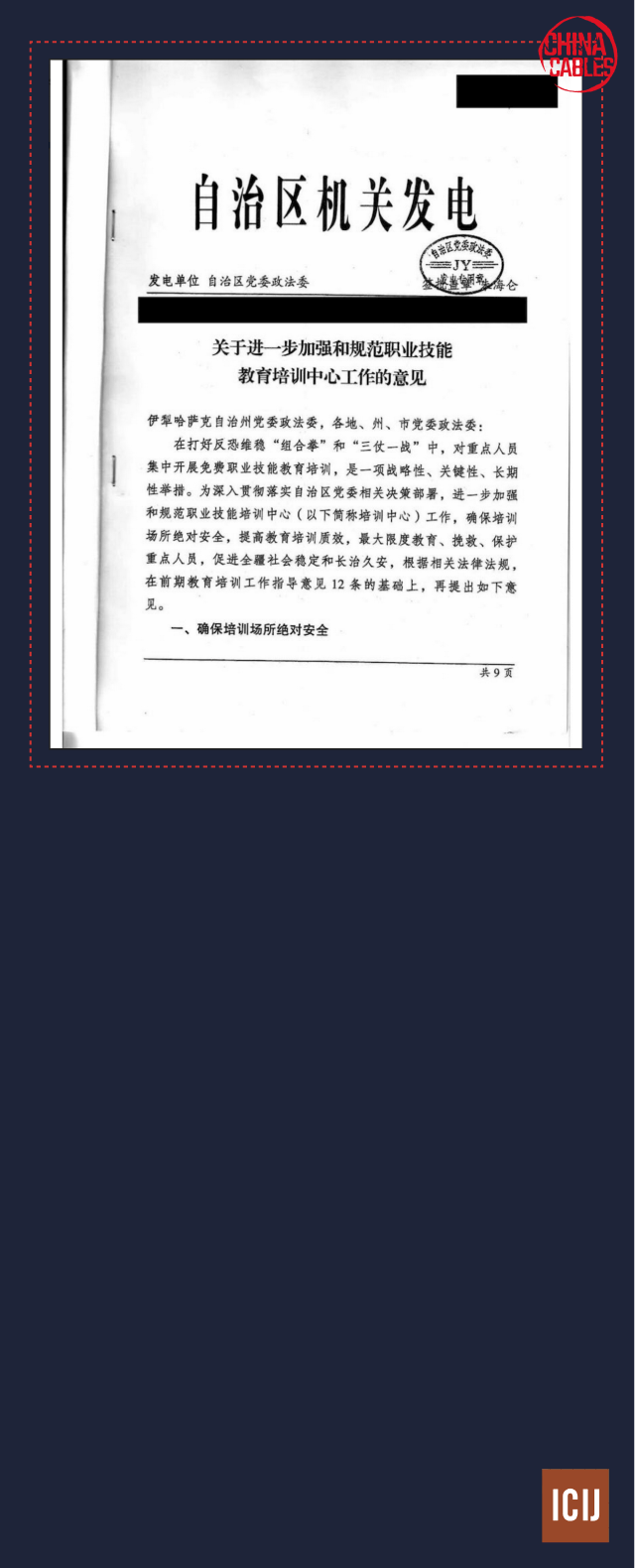
Telegram
This telegram is from the Communist Party commission in charge of Xinjiang’s security apparatus. The telegram, written in Chinese, is an operations manual for running the mass detention camps. It is marked “secret” and was approved by Zhu Hailun, then deputy secretary of Xinjiang’s Communist Party and the region’s top security official.
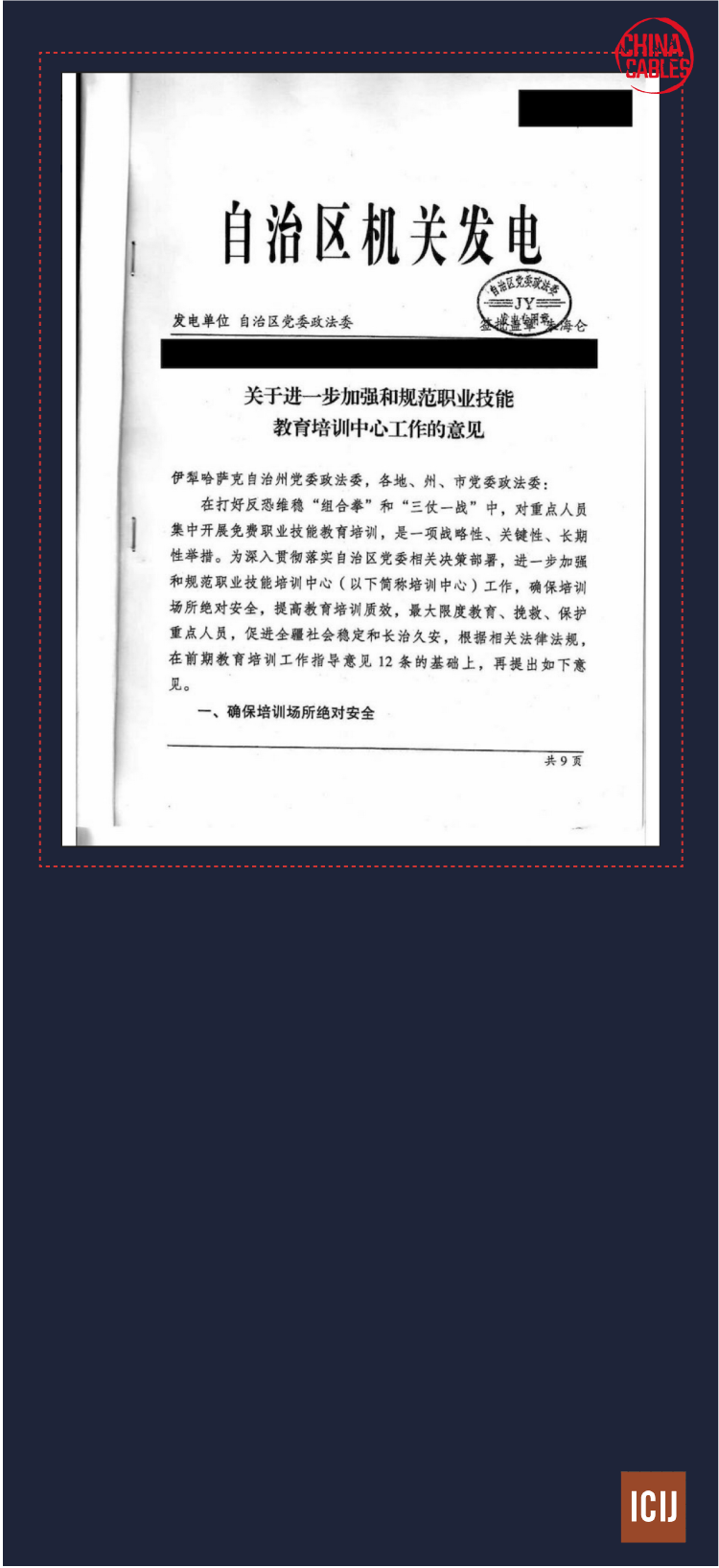
Telegram
This telegram is from the Communist Party commission in charge of Xinjiang’s security apparatus. The telegram, written in Chinese, is an operations manual for running the mass detention camps. It is marked “secret” and was approved by Zhu Hailun, then deputy secretary of Xinjiang’s Communist Party and the region’s top security official.
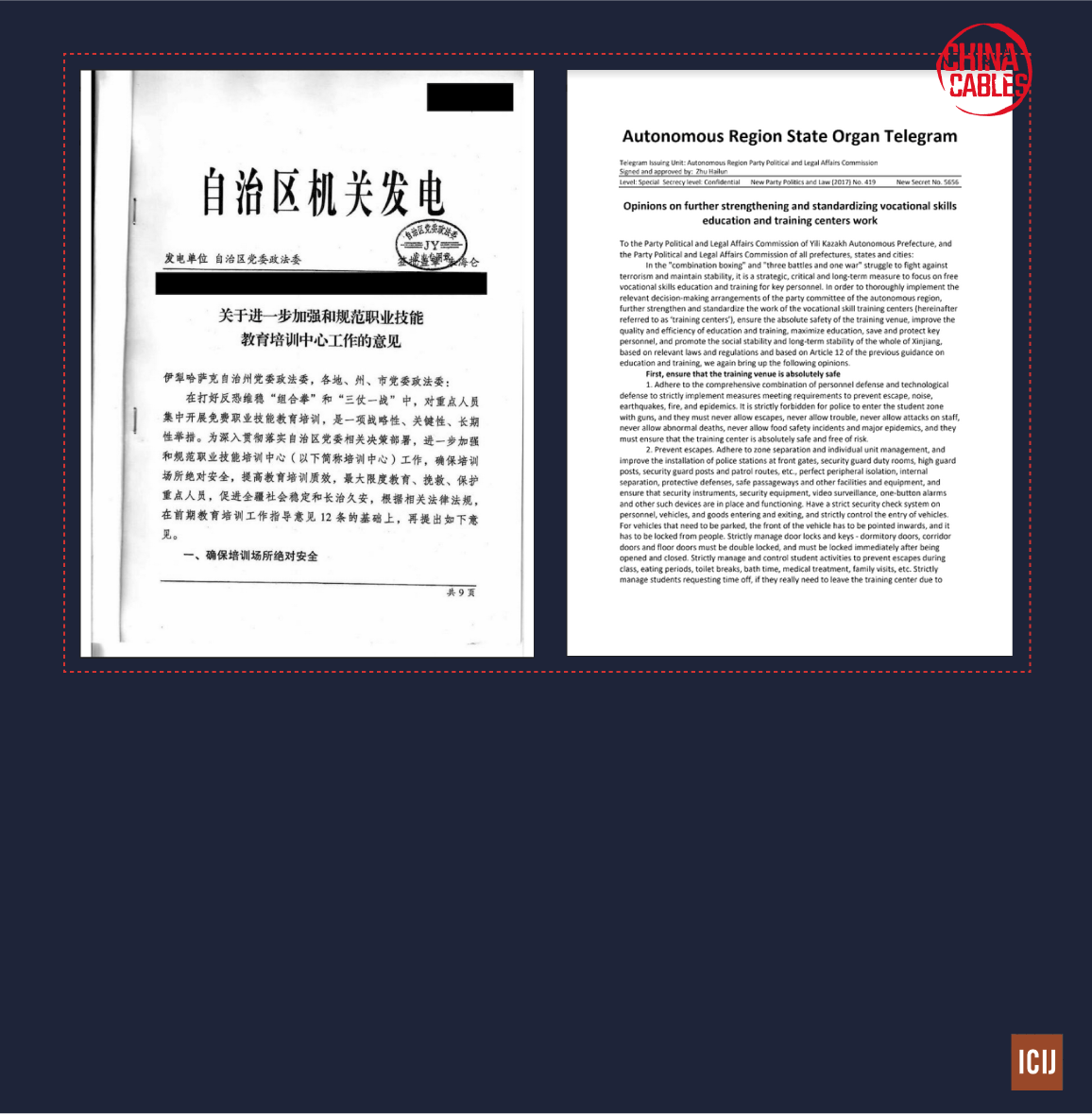
Telegram
This telegram is from the Communist Party commission in charge of Xinjiang’s security apparatus. The telegram, written in Chinese, is an operations manual for running the mass detention camps. It is marked “secret” and was approved by Zhu Hailun, then deputy secretary of Xinjiang’s Communist Party and the region’s top security official.

Telegram
This telegram is from the Communist Party commission in charge of Xinjiang’s security apparatus. The telegram, written in Chinese, is an operations manual for running the mass detention camps. It is marked “secret” and was approved by Zhu Hailun, then deputy secretary of Xinjiang’s Communist Party and the region’s top security official.
China Cables stories from ICIJ’s media partners
- Ireland: The Irish Times
- Spain: El Pais
- U.K.: BBC (Panorama) and The Guardian
- Canada: CBC and Radio Canada
- U.S.: AP, NBC and The New York Times
- France: Le Monde
- Japan: Kyodo News
- Australia: ABC
- Korea: Newstapa
- Germany: NDR and Süddeutsche Zeitung
- Sweden: SVT
- Norway: Aftenposten
